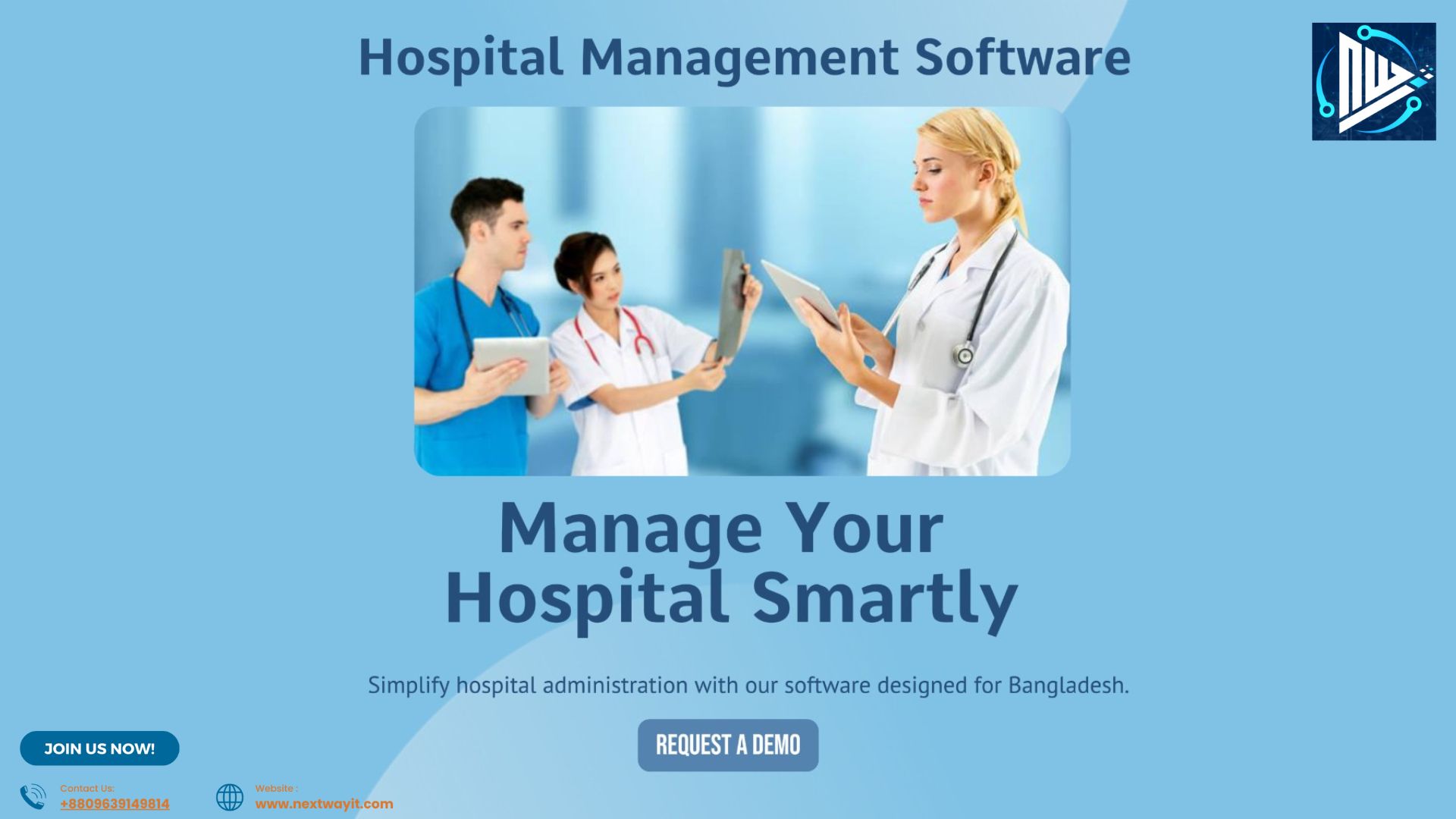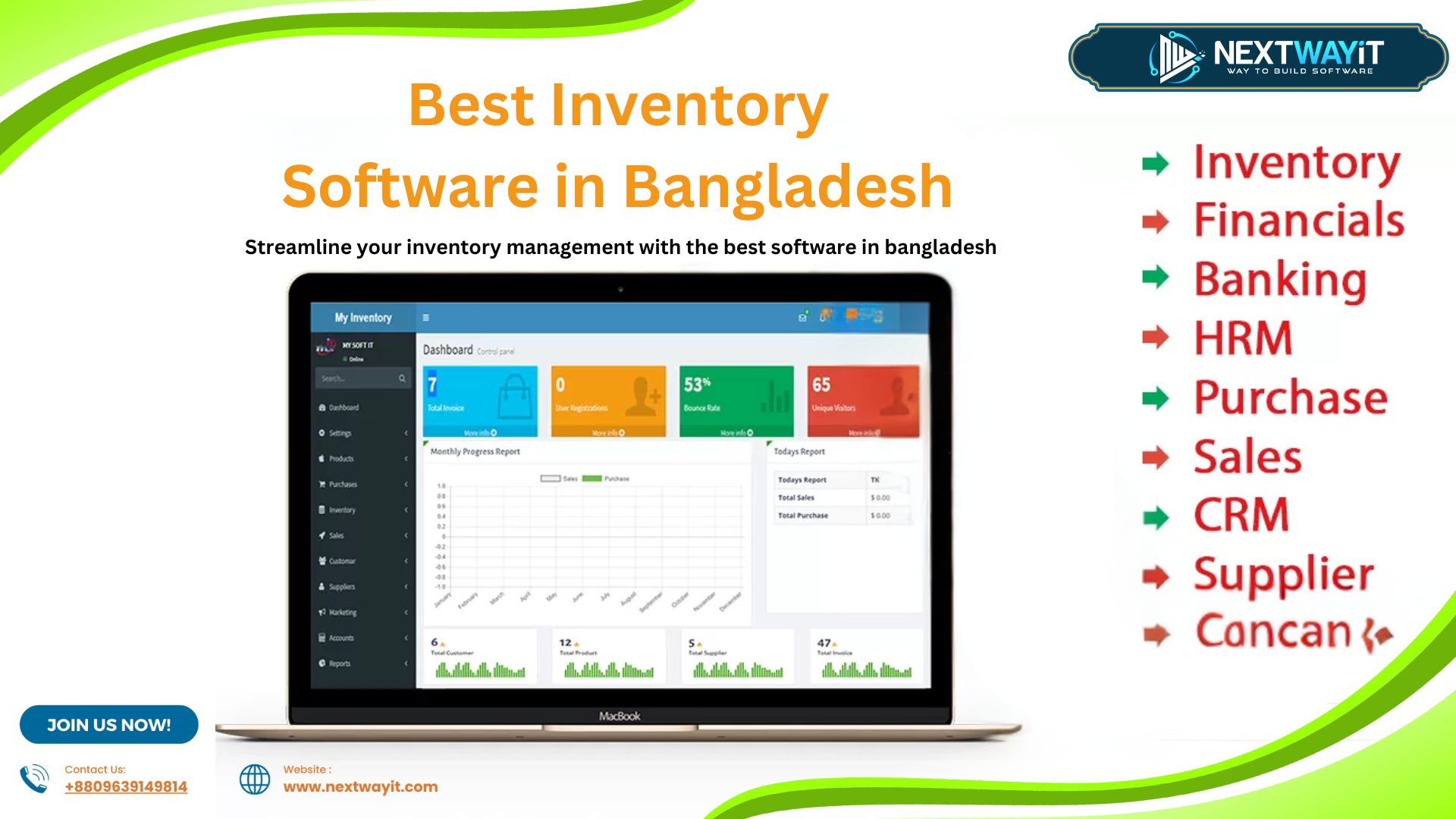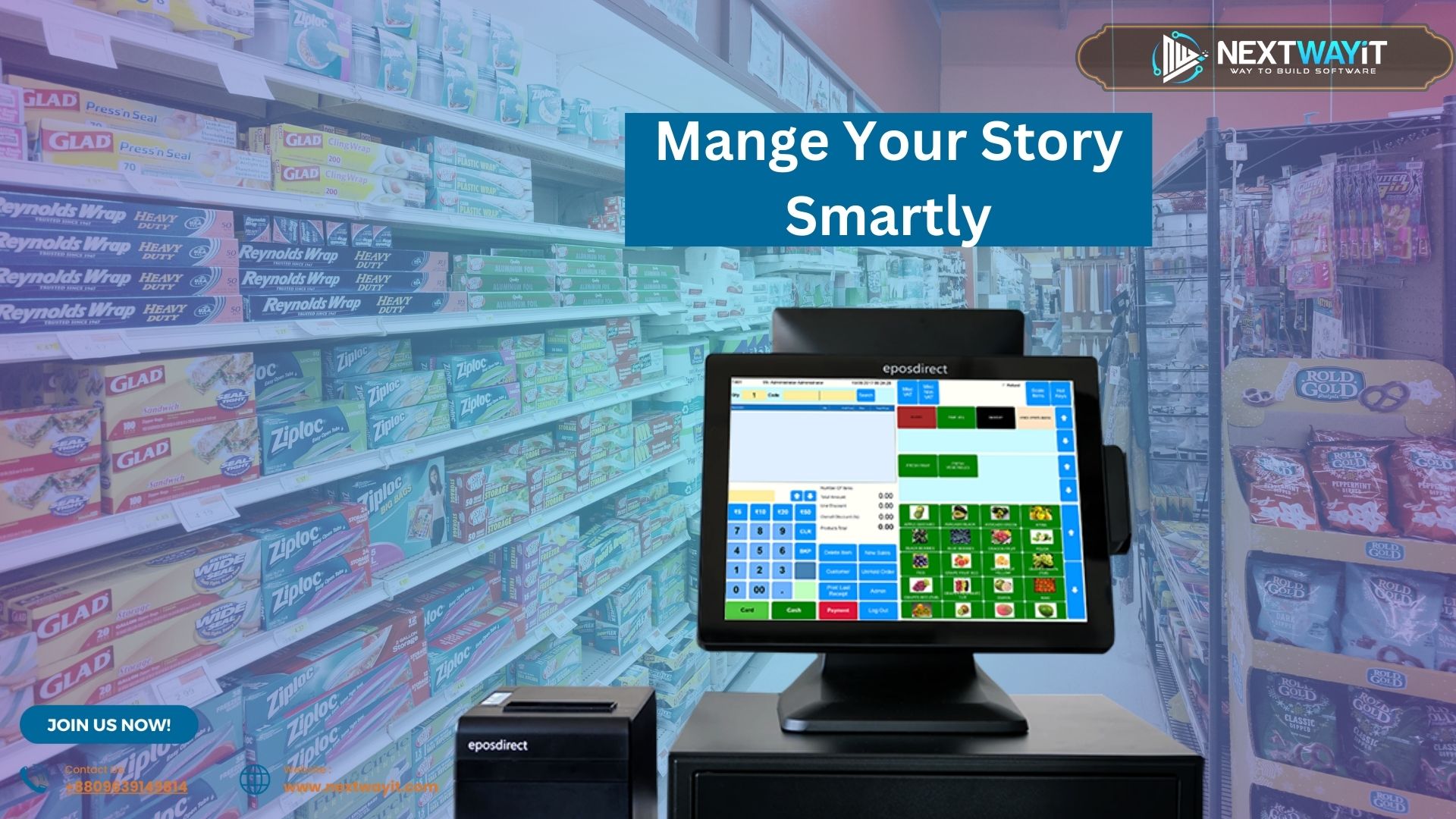
Hospital management software in Bangladesh
Transforming Healthcare: The Comprehensive Role of Hospital Management Software in Bangladesh
Healthcare in Bangladesh is undergoing a crucial transformation, with digital technology playing a significant role in shaping the future. As the country faces challenges like overburdened hospitals, insufficient resources, and a growing population, the need for efficient healthcare management systems is more critical than ever. Hospital management software (HMS) is emerging as a solution to streamline operations, enhance patient care, and improve overall efficiency. This article delves deeply into the importance of HMS in Bangladesh, exploring its features, benefits, challenges, and potential impact on the healthcare industry.
2. The Healthcare Landscape in Bangladesh
Bangladesh, with its population exceeding 170 million, has made remarkable strides in improving healthcare over the past few decades. However, the sector still grapples with significant challenges, including inadequate infrastructure, uneven distribution of healthcare services, and a shortage of skilled healthcare professionals. The public healthcare system is often overwhelmed, leading to long waiting times and compromised patient care. Private hospitals, though better equipped, still face operational inefficiencies that hinder optimal service delivery.
In this context, the adoption of technology-driven solutions like hospital management software is not just desirable but necessary. HMS offers a way to overcome these challenges by automating and integrating various hospital functions, leading to better resource management, improved patient outcomes, and more efficient operations.
3. What is Hospital Management Software?
Hospital management software is an integrated information system designed to manage the administrative, financial, and clinical aspects of a hospital. It serves as the backbone of hospital operations, enabling the seamless flow of information across various departments. HMS typically includes modules for patient registration, appointment scheduling, billing, inventory management, human resources, and electronic medical records (EMR).
In Bangladesh, the adoption of HMS is still in its early stages, but the growing awareness of its benefits is leading to increased implementation across both public and private healthcare facilities. The software’s ability to centralize data and streamline processes makes it an invaluable tool for enhancing the quality of care provided to patients.
4. Key Features of Hospital Management Software
A robust hospital management software system should offer a wide range of features to meet the specific needs of hospitals in Bangladesh. Some of the key features include:
- Patient Management: HMS allows for the efficient management of patient data from registration to discharge. This includes electronic health records (EHR), appointment scheduling, and tracking patient history. The ability to access a patient’s medical history quickly and accurately is crucial for providing effective care.
- Billing and Accounting: The software automates billing processes, reducing the likelihood of errors and ensuring that patients are billed accurately. Integration with accounting modules helps manage hospital finances, track revenue, and monitor expenses. This is particularly important in a country like Bangladesh, where financial resources are often limited, and efficient resource management is essential.
- Inventory Management: HMS tracks the inventory of medical supplies, pharmaceuticals, and equipment. By providing real-time updates on stock levels, the software ensures that hospitals are always equipped with the necessary items, preventing shortages that could compromise patient care.
- Human Resource Management: The software helps manage staff schedules, payroll, performance evaluations, and training. Efficient HR management is vital in a healthcare setting, where staff shortages or mismanagement can lead to significant disruptions in service delivery.
- Reporting and Analytics: HMS provides detailed reports on various aspects of hospital operations, from patient flow to financial performance. These reports enable hospital management to make informed decisions, identify areas for improvement, and optimize resource allocation.
- Appointment Scheduling: The software offers a streamlined appointment scheduling system, reducing patient waiting times and optimizing the use of healthcare professionals’ time. In a busy hospital environment, efficient scheduling can significantly improve patient satisfaction and operational efficiency.
- Electronic Medical Records (EMR): EMR systems within HMS ensure that patient records are stored securely and can be accessed easily by authorized personnel. This not only improves the quality of care but also enhances data security, a critical concern in the digital age.
5. Benefits of Implementing Hospital Management Software in Bangladesh
The implementation of hospital management software brings numerous benefits to healthcare institutions in Bangladesh, transforming the way hospitals operate and deliver care:
- Improved Efficiency: By automating routine tasks, HMS reduces the administrative burden on hospital staff, allowing them to focus more on patient care. This leads to faster processing times, reduced waiting periods, and more efficient use of resources.
- Enhanced Patient Care: With easy access to patient records and history, healthcare providers can make more informed decisions, leading to better patient outcomes. The integration of clinical decision support systems (CDSS) within HMS can further enhance diagnostic accuracy and treatment planning.
- Cost Reduction: Automation reduces the need for manual labor, cutting down on operational costs. Additionally, accurate billing and inventory management help prevent financial losses due to errors or wastage.
- Data Security and Compliance: HMS ensures that patient data is stored securely and is accessible only to authorized personnel. This is crucial for maintaining patient confidentiality and complying with local and international regulations, such as the Health Insurance Portability and Accountability Act (HIPAA) for hospitals that may serve international patients.
- Scalability and Flexibility: As hospitals grow, HMS can easily scale to accommodate new departments, services, and patient volumes. The software’s modular design allows hospitals to add or remove features as needed, making it a flexible solution for institutions of all sizes.
- Improved Resource Management: HMS enables hospitals to track and manage their resources more effectively, from staff to medical supplies. This leads to better resource allocation, reducing wastage and ensuring that the hospital operates at peak efficiency.
- Enhanced Communication: HMS facilitates better communication between different departments within the hospital, ensuring that information is shared quickly and accurately. This is particularly important in emergency situations, where timely communication can make a difference in patient outcomes.
6. Challenges in Adopting Hospital Management Software
Despite the clear benefits, the adoption of hospital management software in Bangladesh faces several challenges. Understanding and addressing these challenges is crucial for the successful implementation of HMS:
- Cost: Implementing HMS requires a significant initial investment, which may be a barrier for smaller hospitals and clinics, particularly in rural areas. The cost of hardware, software licenses, and ongoing maintenance can be prohibitive, making it essential for providers to carefully consider the return on investment (ROI).
- Training and Change Management: Hospital staff need to be adequately trained to use the software effectively, which can be time-consuming and costly. Additionally, the transition from traditional paper-based systems to digital platforms can be challenging, with resistance from staff who are accustomed to old methods.
- Resistance to Change: Some hospital staff may be resistant to adopting new technology, preferring traditional methods of operation. Overcoming this resistance requires effective change management strategies, including staff engagement, education, and support.
- Infrastructure Limitations: In some regions, the lack of reliable internet connectivity and modern infrastructure can hinder the effective implementation of HMS. Hospitals in rural areas may struggle with the technological requirements of HMS, necessitating tailored solutions that can operate in low-bandwidth environments.
- Customization Needs: The healthcare needs in Bangladesh can vary significantly depending on the region and type of hospital. Off-the-shelf HMS solutions may not meet the specific needs of all institutions, requiring customization that can add to the cost and complexity of implementation.
- Integration with Existing Systems: Many hospitals already use various standalone systems for functions like billing or inventory management. Integrating these with a new HMS can be challenging, particularly if the existing systems are outdated or incompatible with modern software.
7. Case Studies: Success Stories in Bangladesh
Several hospitals in Bangladesh have successfully implemented hospital management software, setting a benchmark for others to follow. These success stories highlight the tangible benefits of HMS and provide valuable lessons for other institutions considering adoption:
- Apollo Hospital Dhaka: As one of the leading private hospitals in the country, Apollo Hospital Dhaka has implemented a comprehensive HMS that integrates all aspects of hospital management. The system has led to significant improvements in patient care, reduced administrative workload, and better financial management. The hospital reports a noticeable increase in patient satisfaction and operational efficiency since adopting the software.
- Square Hospital: Another major player in the private healthcare sector, Square Hospital, has also embraced HMS to streamline its operations. The software has enabled the hospital to manage its large volume of patients more effectively, reduce waiting times, and improve the accuracy of medical records. The success of HMS at Square Hospital has made it a model for other institutions in Bangladesh.
- Government Hospitals in Dhaka: Some government hospitals in Dhaka have begun pilot programs to implement HMS, focusing on improving patient registration and billing processes. Early results indicate that the software is helping to reduce patient wait times and improve the accuracy of financial reporting, demonstrating the potential for broader adoption across the public healthcare sector.
These case studies illustrate the transformative impact of HMS on hospital operations and patient care, highlighting the potential for widespread adoption across Bangladesh.
8. Future Prospects of Hospital Management Software in Bangladesh
The future of hospital management software in Bangladesh looks promising, with significant potential for growth and innovation. Several factors are likely to drive the adoption and evolution of HMS in the coming years:
- Government Initiatives: The Bangladeshi government has recognized the importance of digital healthcare solutions and is likely to introduce policies and incentives to encourage the adoption of HMS across public and private hospitals. Initiatives to digitize healthcare records and improve infrastructure will play a crucial role in supporting the growth of HMS.
- Technological Advancements: As technology continues to evolve, we can expect more sophisticated features in hospital management software. For example, the integration of artificial intelligence (AI) and machine learning could enhance decision-making processes, predictive analytics, and patient management. Telemedicine, already gaining traction in Bangladesh, could be seamlessly integrated with HMS to provide remote care, further expanding healthcare access.
- Increasing Demand for Quality Healthcare: As the population becomes more aware of the importance of quality healthcare, the demand for efficient and patient-centric services will increase. Hospitals that adopt HMS will be better positioned to meet these expectations, leading to a competitive advantage in the healthcare market.
- Growth of Private Healthcare Sector: The private healthcare sector in Bangladesh is expanding rapidly, with new hospitals and clinics being established across the country. These institutions are likely to invest in HMS to ensure efficient operations and high standards of care, further driving the adoption of these systems.
- Potential for Export: As Bangladeshi developers and IT companies gain expertise in creating and implementing HMS, there is potential for exporting these solutions to other developing countries facing similar healthcare challenges. This could position Bangladesh as a leader in healthcare technology in the region.
9. Conclusion
Hospital management software is set to revolutionize the healthcare industry in Bangladesh. By streamlining operations, reducing costs, and improving patient care, HMS is not just a technological upgrade but a strategic investment in the future of healthcare. The challenges of adoption are real but surmountable, and the benefits far outweigh the obstacles.
As more hospitals recognize the value of HMS, we can expect to see a significant transformation in the way healthcare is delivered in Bangladesh. The successful implementation of HMS will lead to better patient outcomes, more efficient hospital operations, and ultimately, a healthier population. The future of healthcare in Bangladesh is digital, and hospital management software will be at the forefront of this transformation.



